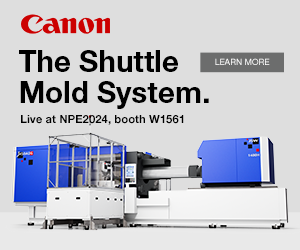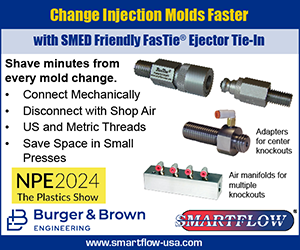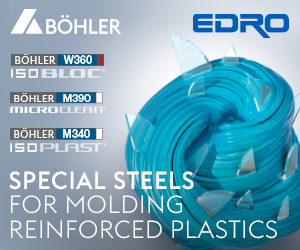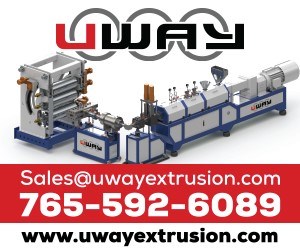Materials: Portfolio of Novel PBT Compounds Derived from rPET
SABIC’S LNP Elcrin iQ compounds aim to extend useful life of PET bottles and help reduce plastic waste.
A new portfolio of novel PBT compounded resins that are derived from recycled PET (rPET) have been developed by SABIC, Houston, Texas, to support the circular economy and help reduce plastic waste. The newly globally launched LNP Elcrin iQ compounds and blends are based on upcycled iQ PBT resins, a proprietary SABIC technology. This technology reportedly overcomes some of the limitations of mechanical recycling by using chemical processes to depolymerize PET bottles and other PET waste into their precursor chemicals, purify them and then use them to create new PBT resin. The technology can deliver performance and processing benefits such as good chemical resistance, colorability, high flow for faster throughput and flame retardance.
By chemically upcycling consumer-discarded PET (primarily single-use water bottles) into higher-value PBT materials with enhanced properties and suitability for more-durable applications, the company is encouraging the use of recycled resins. These products also offer a smaller cradle-to-gate environmental footprint than virgin PBT resin, as measured by Cumulative Energy Demand (CED) and Global Warming Potential (GWP).
LNP Elcrin iQ resin is a drop-in solution for virgin PBT and other conventional PBT materials, making it easier for manufacturers to make their products more sustainable. By displacing virgin raw material used to manufacture PBT, LNP Elcrin iQ resin has been shown through peer-reviewed life cycle assessment to reduce the energy and carbon footprint of the material by up to 61% and 49%, respectively. Further, each kilogram of LNP Elcrin iQ resin uses up to 67 post-consumer PET water bottles (0.5 liter).
The portfolio includes glass- and mineral-reinforced grades and non-halogenated FR and UV-resistant formulations. Some of the LNP Elcrin iQ grades even have the potential to achieve compliance with FDA food-contact regulations.Potential applications include durable internal and aesthetic components for consumer electronics, automotive connectors, and housings for medical devices. Such applications can extend the useful life of the original, single-use PET resin, which helps keep the material out of the waste stream for a longer period.
Related Content
-
Mold Opaque White PET Bottles – Without Pigment
Trexel and Husky are cooperating on molding recyclable opaque white preforms for PET bottles, which provide a light barrier using foam instead of pigment.
-
Coca-Cola’s Redesign of Small PET Bottles Pushes Lightweighting Below Prior ‘Floor’
Coca-Cola thought it had reached the limits of lightweighting for its small PET carbonated soft drink bottles. But a “complete redesign” led to a further 12% reduction.
-
In the Zone: Bottles
The Bottle Zone is the place to explore cutting-edge bottle and container technologies.





 (2).jpg;maxWidth=300;quality=90)





